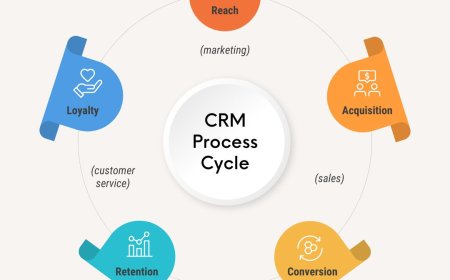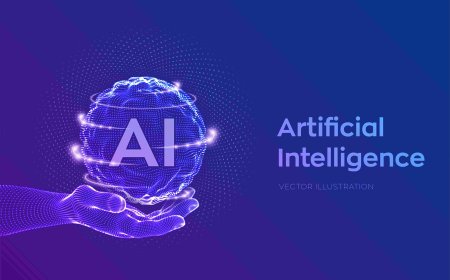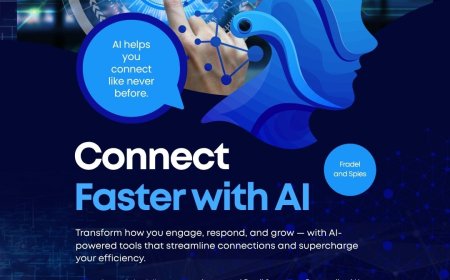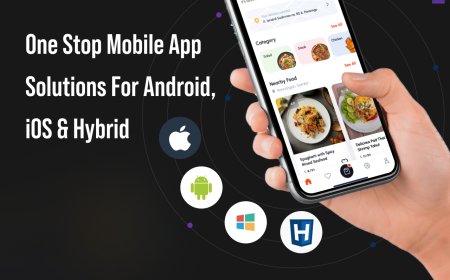Hiring Application Developers: Avoid These 8 Common Mistakes
Hiring an application developer isn’t just another business transaction—it’s a partnership that directly impacts the success or failure of your app. A single wrong hire can lead to delays, blown budgets, buggy software, or even a total project collapse. And yet, many businesses and startups fall into the same traps when hiring developers.
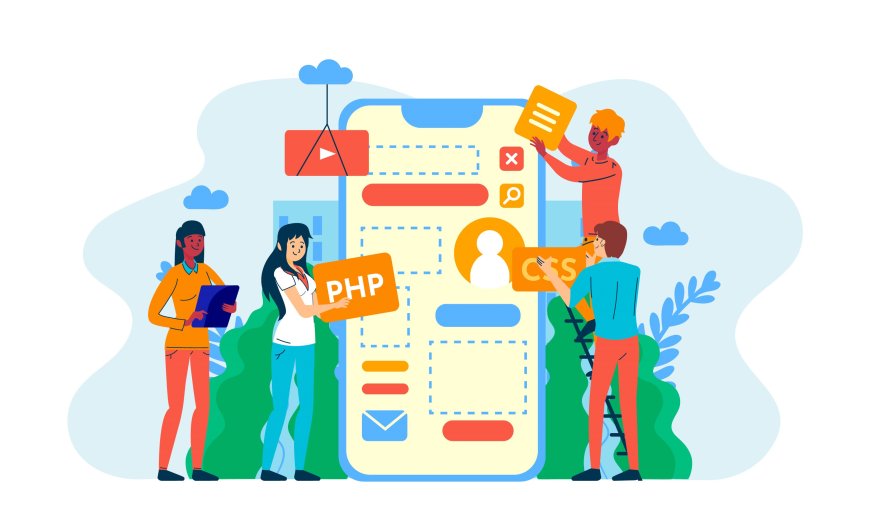
Introduction
Hiring an application developer isnt just another business transactionits a partnership that directly impacts the success or failure of your app. A single wrong hire can lead to delays, blown budgets, buggy software, or even a total project collapse. And yet, many businesses and startups fall into the same traps when hiring developers.
Whether you're launching your first app or scaling a digital product, knowing what not to do is just as important as knowing what to do. In this guide, well break down the 8 most common mistakes people make when hiring application developersand how you can avoid them to ensure your app project stays on track, on time, and budget.
Mistake 1: Hiring Based on Cost Alone
One of the biggest and most frequent mistakes is choosing a developer simply because they offer the lowest bid. While staying within budget is essential, choosing a developer solely based on price can backfire badly.
Why Its a Problem:
- Low-cost developers often lack experience or cut corners on quality
- You'll likely spend more fixing bugs or redoing poorly written code
- You might deal with missed deadlines, bad communication, or even abandonment
What to Do Instead:
- Focus on value, not just cost
- Evaluate their portfolio, technical skills, and communication style
- Choose someone whose rate aligns with their experience and deliverables
Spending a little more upfront can save you thousands in rework and post-launch issues.
Mistake 2: Not Defining Clear Project Requirements
You wouldn't build a house without a blueprintso why build an app without a plan? A vague idea isnt enough. If your project scope isnt clearly defined, youll face delays, misunderstandings, and unmet expectations.
Why Its a Problem:
- Developers dont know what to build
- Features may be added or removed without strategic thought
- Difficult to estimate time, cost, or outcomes
What to Do Instead:
- Write a detailed project brief including:
- Core features and functionalities
- User flows and goals
- Technical requirements
- Create wireframes or mockups
- Break the project into milestones with deadlines
Clear documentation is the foundation of successful development.
Mistake 3: Ignoring Technical Expertise and Experience
Not all developers are created equal. Just because someone has coding skills doesnt mean theyre a good fit for your app. Experience with your tech stack, app type, and feature set is crucial.
Why Its a Problem:
- A generalist may not understand mobile UX best practices
- Backend developers may struggle with frontend features, or vice versa
- Lack of experience can lead to slow progress or constant rework
What to Do Instead:
- Choose developers who have built similar apps
- Ask about technologies they use (Swift, Kotlin, React Native, etc.)
- Evaluate how they handle security, scalability, and app performance
Look for a proven track record, not just theoretical knowledge.
Mistake 4: Overlooking Communication and Soft Skills
Great developers arent just coderstheyre collaborators. If your developer isnt responsive, proactive, or clear, the project will suffer.
Why Its a Problem:
- Misunderstandings about scope or deadlines
- Long response times lead to delays
- Unclear reporting hides progress or issues
What to Do Instead:
- Evaluate communication during the interview process
- Ask how they prefer to collaborate (Slack, Trello, email)
- Set expectations for updates and meeting schedules
The best developers communicate early, often, and clearly.
Mistake 5: Failing to Check Portfolios and References
Hiring without checking a developers previous work is like buying a car without a test drive. You need proof they can deliver.
Why Its a Problem:
- You might hire someone with no real experience
- Previous projects may be irrelevant to your needs
- Fake or exaggerated portfolios are common
What to Do Instead:
- Ask for live app links or GitHub repos
- Review their App Store or Google Play listings
- Contact past clients and ask about their experience
If a developer cant show successful past work, thats a red flag.
Mistake 6: Skipping Legal Agreements
Skipping legal documentation might seem like a shortcut when youre eager to get started, but its one of the riskiest moves you can make. Contracts and NDAs arent just formalitiestheyre your primary form of protection in a development partnership.
Risks of Working Without Contracts or NDAs
- Loss of IP (Intellectual Property): Without proper agreements, your developer might claim ownership of the code or design.
- No clear scope or terms: Without a contract, theres no legal way to enforce deadlines, payment terms, or deliverables.
- Exposure of confidential ideas: Without an NDA, your unique app concept could be shared or even copied.
- Disputes and misunderstandings: No legal documentation means no formal method for resolving conflicts if something goes wrong.
What Every Agreement Should Include
- Scope of Work: Define the tasks, technologies, features, and platforms the developer will work on.
- Timeline and Milestones: Break the project into stages with deadlines and payment terms.
- Payment Structure: Hourly, fixed-price, or milestone-based payments with clear due dates.
- Ownership Rights: Ensure all intellectual property belongs to you upon payment.
- Confidentiality Clause: Protect your business idea with a Non-Disclosure Agreement (NDA).
- Termination Clauses: Define what happens if either party decides to end the contract early.
- Dispute Resolution: Agree on how disagreements will be handled (e.g., mediation, arbitration).
No matter how much you trust a developer, protect your app, your idea, and your investment with solid legal agreements.
Mistake 7: Not Testing Before Hiring
Would you hire a chef without tasting their food? Probably not. So why hire a developer without seeing them code? A trial task or technical test is essential for evaluating real-world skills and compatibility.
Why You Should Give Trial Tasks or Assessments
- Resumes and portfolios can be misleading: Just because someone claims to be a Flutter or React Native expert doesnt mean they are.
- You see how they work under deadlines: Are they fast and clean, or sloppy and slow?
- It reveals their communication skills: How they ask questions and clarify requirements shows how theyll collaborate on bigger tasks.
How Technical Evaluations Reveal Coding Quality and Fit
A good trial task should be:
- Relevant: Choose a small feature or component that mirrors your actual app requirements.
- Time-boxed: Set a deadline to evaluate time management.
- Realistic: Dont overload the task; you're testing fundamentals, not trying to get free labor.
Assess the quality of code, documentation, error handling, and UI/UX understanding. This small test can save you months of frustration.
Mistake 8: Choosing the Wrong Engagement Model
Not every project needs a team of ten. And not every freelancer can handle complex backend integrations. Picking the wrong hiring modelfreelancer, agency, or in-housecan drain your budget or derail your app.
Freelancer
Pros:
- Affordable
- Flexible
- Great for short-term or solo projects
Cons:
- Limited bandwidth
- Less oversight
- May lack resources for QA or design
Best For: MVPs, prototyping, and specific feature development.
Agency
Pros:
- Full-service (design, development, QA)
- Project management included
- Faster delivery with a larger team
Cons:
- More expensive
- Less personal attention
- Limited flexibility mid-project
Best For: Full-scale apps, fast turnaround, long-term projects.
In-House Developer
Pros:
- Fully aligned with company goals
- Real-time collaboration
- Ideal for ongoing app iterations
Cons:
- High salary + overhead costs
- Time-consuming to hire
- Not scalable for short projects
Best For: Product-based companies, long-term app evolution, startups with funding.
Always align your choice of engagement model with your budget, timeline, and project size.
Conclusion
Hiring an app developer isnt as simple as checking off a skills list. It requires thoughtful planning, clear communication, and a solid vetting process. Avoiding the eight common mistakes weve covered can save you time, money, and major headaches.
Make your hiring decision with clarity and confidence. The right developer isnt just a codertheyre your partner in building a great product.
FAQs
How do I evaluate a developers coding skills?
Conduct a technical assessment, review their GitHub or code samples, and analyze past projects. Look for clean code, modular structure, and well-documented logic. Trial tasks work great for gauging real-world skill.
What should a developer contract include?
Every developer contract should define the scope of work, payment terms, project timeline, IP ownership, confidentiality clauses (NDA), and dispute resolution methods. Dont start work without one.
Is it safe to share my app idea without an NDA?
Its risky. While most developers are professional, an NDA legally binds them to confidentiality. Always have one signed before discussing proprietary features or business logic.
Should I hire a generalist or a specialist?
It depends. Generalists are good for MVPs or small apps. Specialists are better for apps needing deep technical expertise (e.g., advanced security, machine learning, custom APIs).
How much should I budget for hiring a developer?
Freelancers range from $25$150/hour depending on experience and location. Full app projects can cost $10,000$150,000+. Always include a buffer (1020%) for revisions and unexpected tasks.
































